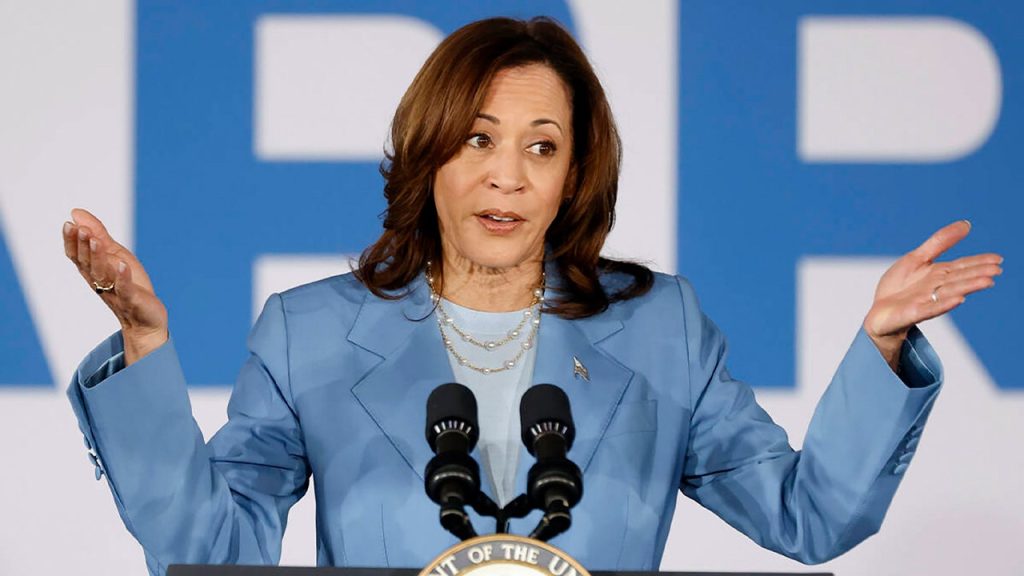Vice President Kamala Harris recently resurfaced video from September 2023, in which she discussed young people experiencing “climate anxiety” that is causing them to have doubts about major life decisions such as having children or buying a home. During her national college tour, Harris mentioned that young voters had a record turnout in the 2020 election, leading to initiatives such as student loan forgiveness. She referred to “climate anxiety” as the fear of the future and uncertainty about whether it is reasonable to think about starting a family or purchasing a house in the face of climate change concerns.
Critics on social media at the time of Harris’ original remarks pushed back against her claim of “climate anxiety,” arguing that Americans are more likely to consider rising energy, food, and housing costs when making decisions about having children. The Republican-led House Budget Committee laid the blame on the Biden administration’s economic policies for causing the most rapid increase in mortgage rates since 1981. Additionally, a Gallup poll from May of that year showed that only 21% of Americans believed it was a good time to buy a home, further reinforcing the economic concerns that may be influencing younger generations’ decisions about their futures.
Despite the fact that the video is almost a year old, Donald Trump Jr. recently shared it on X, drawing attention to Harris’ remarks once again. The repost gained traction, with even Elon Musk, the owner of X, commenting on the video and labeling Harris as an “extinctionist.” However, a Democrat responded to the repost, criticizing the Trump campaign for being dishonest and disingenuous in their portrayal of Harris’ comments. The user pointed out that Harris was simply acknowledging the anxieties that young people had shared with her about the future, including concerns about starting a family.
The discussion around “climate anxiety” and its impact on young people’s decisions about the future is ongoing, with differing perspectives on the validity of Harris’ remarks. Some see her comments as reflecting a genuine concern for the fears and anxieties expressed by young people regarding the impact of climate change on their lives. Others, particularly critics on social media, argue that economic factors such as rising costs and economic policies are more likely to influence decisions about having children or buying a home, rather than climate change concerns alone. The debate highlights the complex nature of the issues facing young people as they navigate decisions about their future in a changing world.
As the conversation continues, it is important to consider the various factors that may be influencing young people’s decisions about major life choices. While climate change is a significant concern for many, economic factors and government policies also play a role in shaping individuals’ decisions about starting a family or purchasing a home. Understanding the intersection of these issues is critical for creating policies and initiatives that address the needs and concerns of young people as they navigate their futures in an uncertain world.


